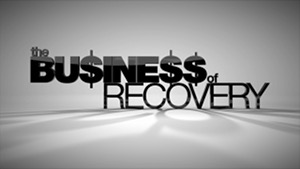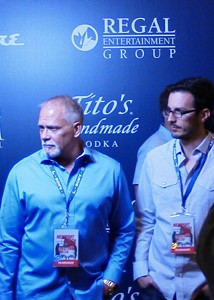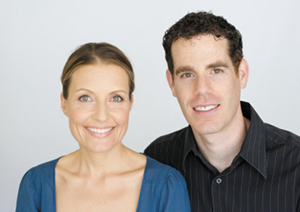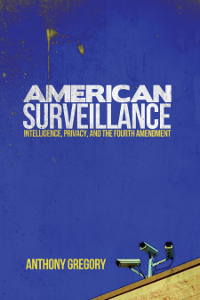Posted by Elena del Valle on May 31, 2017
Information provided by Event Partner

Latin Alternative Music Conference 2017
July 11th – 15th, 2017
New York City – Stewart Hotel
The Latin Alternative Music Conference is the only major conference devoted to bilingual and bicultural cutting edge music, art and entertainment. The five-day event includes industry panels, concert showcases, parties and films and draws a tastemaker crowd of leading artists, executives, journalists and forward thinkers. In 2017, the LAMC will be celebrating its 18th year. The conference will take place at the Stewart Hotel in Midtown Manhattan with concerts throughout New York City including Central Park SummerStage, Celebrate Brooklyn at Prospect Park, the Highline Ballroom, SOB’s and other iconic New York venues.
In its 18 years, the LAMC has made a name for itself as a hub of Latino culture, bringing talent from all over the world to celebrate Latino identity each summer. Don’t miss the dynamic industry panels, featuring many of the movers and shakers who are helping to further define today’s music market. Head over to latinalternative.com before online registration closes Wednesday, June 28th!
Posted by Elena del Valle on May 25, 2017

The Business of Recovery
Photos, video: The Business of Recovery
It took the filmmakers behind The Business of Recovery (thebusinessofrecovery.com/) four years to complete the 81-minute documentary targeting “The overwhelming number of people who have been affected by addiction…directly or indirectly.” In June of 2016, they released the film to the public via iTunes, Amazon and Google Play. It was recently screened at the Palm Beach Film Festival. Scroll down to watch a trailer of the film.
According to the Center for Disease Control, in 2015 some 88,000 people in the United States died of alcohol abuse and 47,000 died of a drug overdose. Every day 6,300 people seek addiction treatment at 14,000 treatment centers across the nation; and addiction treatment revenue has increased from $9 billion in 1986 to $34 billion in 2016 while drug overdose rates have tripled, according to The Business of Recovery.
Ninety percent of the centers base their treatments on Alcoholics Anonymous Twelve Steps principles despite abysmal rates of recidivism, according to the documentary. A spokesperson for the National Institute on Drug Abuse explains on camera that there is only anecdotal evidence of limited success for Alcoholics Anonymous treatment. At the same time, there are 60,000 sober living homes across the country with little or no regulation.
“Our goal in making The Business of Recovery was to demand the addiction treatment industry change the way addiction is treated in three primary areas: Better educated and medically licensed professionals in charge of addiction treatment, Regulations to protect the patient and align addiction treatment facilities with medical standards, the use of scientifically proven treatments (empirical, not evidence based),” said Greg Horvath, producer of the film, by email.
He and a close friend financed the documentary, which cost less than one million dollars to make. The producers spoke to hundreds of people, interviewed over 60 families, addiction experts, treatment providers, doctors, and scientists from across the United States.

Greg Horvath, producer, and Adam Finberg, director, The Business of Recovery at the Newport Beach Film Festival
“The toughest challenge was assembling the enormous amount of information we gathered and create a film that would help educate people that for as ‘medical’ as the addiction treatment industry sounds and acts, it lacks most if not all of the rigors of science that are applied to medical treatments,” Horvath said when asked about the greatest challenge and biggest reward of the film project. “And it is all but absent of regulations to protect the patient and align addiction treatment facilities with medical standards. The greatest reward has been the ground swell of public support the film has received, and to see some aspects of the industry slowly starting to change.”
When asked what marketing strategies they had used to promote the film he said, “Our strategy was to create public interest in the film thru film festivals and other screenings. The Business of Recovery premiered at the Newport Beach Film Festival to three sold-out audiences and has been screened across the United States (and Canada) to many other sold-out audiences at film festivals, prestigious post-secondary institutions (including Columbia University Medical School in NY, UC Irvine School of Medicine and School of Law in CA, and Spalding University, School of Professional Psychology in KY, to name a few), and many other public and private screenings. As well, it was one of only four films invited to screen at the International Drug Policy Reform Conference in Washington, DC.”
Click to buy The Business of Recovery
Posted by Elena del Valle on May 18, 2017

The Whole Foods Diet
Photos: Whole Foods Market, Grand Central Life & Style
John Mackey, co-founder and chief executive officer, Whole Foods Market joined forces with Alona Pulde, M.D. and Matthew Lederman, M.D., the latter two known for their Forks Over Knives film and books, to publish The Whole Foods Diet The Lifesaving Plan for Health and Longevity (Grand Central Life & Style, $28). The 336-page hardcover book, published this year, features the Whole Foods Market logo on the cover next to Mackey’s name.

Alona Pulde, MD and Matthew Lederman, MD, co-authors, The Whole Foods Diet
The book is divided into three parts and 15 chapters. Following an introduction by Mackey the authors speak mostly (a final chapter also is in Mackey’s voice) with a single voice, starting with an introductory section on diet and health. A second section outlines their ideas about food and their food group preferences. The remaining two chapters are dedicated to a 28-day meal plan. According to a representative from their publisher, the authors were too busy to respond to questions by email.
Although all three are vegan, they believe a diet consisting of 90 percent vegetables is healthy. Their approach to health begins with eight main food groups: Whole grains and starchy vegetables, beans and legumes, berries, other fruit, cruciferous vegetables, leafy greens, nonstarchy vegetables, and nuts and seeds. The authors dedicate an entire chapter to the groups and their beliefs about each. They dedicate another entire chapter to the ethics of being vegan.

John Mackey, co-author, The Whole Foods Diet
Mackey is co-author of Conscious Capitalism. Pulde is a board-certified practitioner of acupuncture and Oriental and family medicine. Lederman is a board-certified internal medicine physician. Pulde and Lederman were featured in Forks Over Knives and co-authored the New York Times bestseller The Forks Over Knives Plan.

Click to buy The Whole Foods Diet
Comments:
Filed Under: Books
Posted by Elena del Valle on May 11, 2017

American Surveillance
Photo: The University of Wisconsin Press
In American Surveillance Intelligence, Privacy, and the Fourth Amendment (University of Wisconsin Press, $44.95) Anthony Gregory explores the competitive interests of the United States government’s desire for unfettered access to information about its citizens and their right to privacy from undue intrusion. He begins by examining the country’s history in that regard all the way to our Founding Fathers. In this era of increasingly effective technological tools and broadening laws that facilitate a growing number of personal data breaches he concludes that the book asks more questions than it answers.
When asked what inspired him to write the book the author replied by email, “For over a decade I researched civil liberties issues for the Independent Institute, and so this book fit into that larger project. I’d been intrigued by surveillance issues since the war on terror began. Even before that I considered foreign relations and such domestic policies as the drug war to have an affinity in consequences invited more exploration.”
The hardcover 263-page book was published in 2016 in collaboration with the Independent Institute. It is written in an academic style divided into an Introduction, a Conclusion, an Epilogue and nine chapters: Reconnoitering the Frontier, 1775-1899; Foreign Influences, 1900-1945; Espionage and Subversion, 1946-1978; Calm Before the Storm, 1979-2000; The Total Information Idea, 2001-2015; Unreasonable Searches; Fourth Amendment Mirage; Enforcement Problems; and The Privacy Question. It also includes copious end notes and references.
“The main goal was to look at the intersecting issues of security intelligence and privacy rights with fresh eyes,” he said. “These are big questions with correspondingly huge literatures, and I wanted to deliver a contribution that made sense of it all, both providing a balanced analytical approach to multiple complex topics and revealing the more radical implications of what many self-described moderates on both sides of policy controversies advocate.
“I hoped it would reach both scholarly specialists and generalists as well as lay audiences concerned about policy,” he said when asked who was the target audience for the book. “It serves to curate a lot of different literatures and so can be a starting point for many different types of readers. Those in policy seeking simple answers might not find them here, but they will find some material that I hope will enhance their understanding.” In response to questions about the greatest challenge the book posed, he said: “I suppose the biggest challenge was maintaining analytical balance, and satisfying peer reviewers with different perspectives while maintaining an editorially sufficient thesis. I was surprised by many little factual discoveries on the way. I was most pleasantly surprised that some of the scholars on privacy and intelligence I had most admired found the work worthwhile!”
When asked if he found that the violation of privacy rights of Americans was justified by the safety concerns, he replied: “I try to keep some distance between my academic writing and my ideological commitments, but it’s not always possible. I think privacy advocates understate how strong the consequentialist case can be against their cause. But my view on the rightness or wrongness government surveillance is not primarily rooted in consequentialism. That’s why I think it’s more of a cultural question—not even a matter of legal rights—when we talk about privacy and surveillance. And once you know where you stand on that, you have to see what kinds of other government powers correspond to the degree of privacy you want. That often kicks the question to foreign policy or law enforcement, where sometimes measures taken do not even achieve the stated goals on their own terms. So this is a rather big question.”
Gregory is the author of The Power of Habeas Corpus in America: From the King’s Prerogative to the War on Terror, winner of the PROSE Book Award for legal studies. He is a fellow of the Independent Institute in Oakland, California.

Click to buy American Surveillance
Comments:
Filed Under: Books
Posted by Elena del Valle on May 1, 2017

Filmmaker Dana Ziyasheva
Photo: Dana Ziyasheva
A podcast interview with filmmaker Dana Ziyasheva, is available in the Podcast Section of Hispanic Marketing & Public Relations, HispanicMPR.com. During the podcast, she discusses the film Defenders of Life (see With video – New film addresses underage marriage among indigenous people) with Elena del Valle, host of the HispanicMPR.com podcast.
Dana, born in Almaty, Kazakhstan, in 1972, dreamed of becoming a writer and filmmaker. But in the Soviet Union of her childhood, opportunities for a middle-class Kazakh girl from the empire’s outskirts to make a career in cinema were virtually nonexistent. Instead Dana graduated from Kazakh State University and became a television journalist in the field covering police patrols as well as natural and political disasters.
In 1994, she used her fellowship at the Central European University in Prague, Czech Republic, to foray into Western Europe. No one, not even the Kazakh government, could believe it when the United Nations Educational, Scientific and Cultural Organization in Paris offered her a position as the youngest and first-ever international civil servant from Kazakhstan. Despite initial disapproval from her own government, Dana spent the next 20 years working for the UN in Paris, Iraq, China and Costa Rica. Between missions, negotiating with governments and implementation of international conventions and UN Plans of Action, she was involved in audiovisual projects with Central China TV and China Film Group.
To listen to the interview, click on the play button below, scroll down until you see “Podcast” on the right hand side, then select “HMPR Dana Ziyasheva” and click on the play button below or download the MP3 file to your iPod or MP3 player to listen on the go, in your car or at home from the RSS feed. Some software will not allow flash, which may be necessary for the play button and podcast player. If that is your case, you will need to download the file to play it. To download it, click on the arrow of the recording you wish to copy and save it to disk. The podcast will remain listed in the April 2017 section of the podcast archive.



















